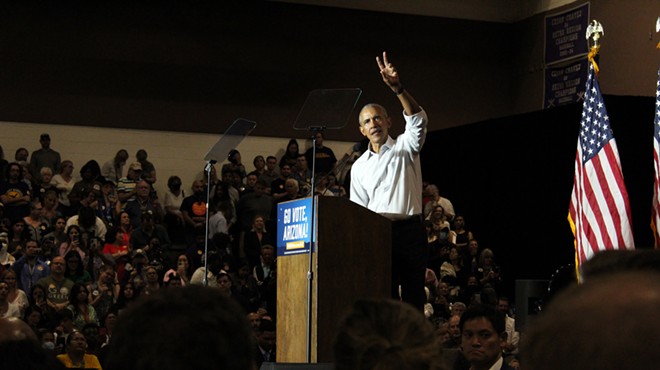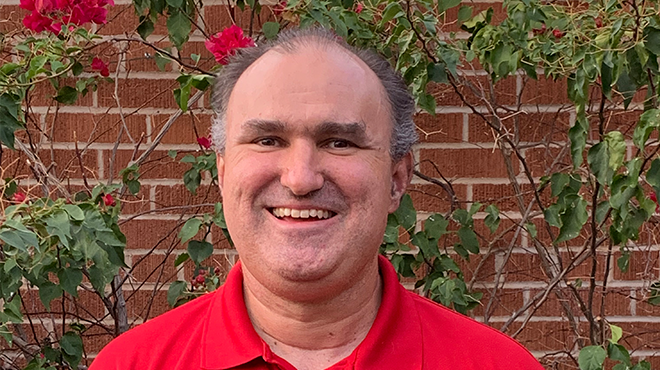Thursday, December 20, 2007
Dems Ready to Take on Supes, Part 2
Now that Judge Michael Miller issued his ruling Tuesday that allows the Dems to have the 2006 primary- and general-election data files, all is well, voting-wise, in Pima County, right?
Well, that depends. At the Jan. 8 Board of Supervisors meeting, the supervisors may decide to appeal and refuse to hand over the files despite Miller’s ruling.
But let’s say the supes decide the people of Pima County rule this fair land and release the 2006 primary and general election files. What happens next, say ye?
Election integrity activists like John Brakey and Jim March will do a forensic analysis of the files looking for discrepancies in audit logs and time stamps. If something seems odd, particularly during the primary, Brakey says it should be enough to convince Miller to release remaining files requested by the Democratic Party.
These are the files that have 2006 RTA election data. And that is the election folks like Brakey and members of the Democratic Party’s Election Integrity Committee suspect was flipped.
Knowing this is what makes Miller's ruling confusing. The ruling seems split, first siding with the Dems, and then siding with the county. But it allows the Dems access now to a portion of the records--and a chance to later access the remaining records.
Brakey says because the ruling was laid out like this, it is difficult for Pima County to appeal.
But in a way, the burden remains on the Dems to find something in the files. If they do, they’ll have to go back and convince the court that concerns about what they've found override Pima County's security concerns aboutreleasing all the data.
During the four-day trial, Pima County threw around words like "chaos" and "mayhem" to describe what could happen if all files were released. One concern is the possibility of outside hacking.
“Now, remember, in the primary, there are some big problems. (Pima County) had impunity at the primary, because we weren’t watching. Now we’re watching,” Brakey says.
Brakey says the primary is important to the process because of former District 28 House Rep. Ted Downing.
Downing, a Democrat running in the primary for the state Senate against fellow Democrat Paula Aboud, was known as an election-integrity activist and a vocal critic of the early Rio Nuevo project. This work that frustrated Secretary of State Jan Brewer, the GOP and developers.
Brakey says four hours before the election, a roob-call went out (click here to listen to said robo-call), sponsored by the GOP, painting an ugly picture of Downing and telling residents to vote for Aboud. This was an all-Democrat race, but the GOP wanted Downing out, Brakey says.
He and others suspect the Elections Division may have illegally printed an election summary of early ballots showing Downing was ahead the day before the election. Between that, the robo-call and the use of a port on the elections machines, Brakey says it all seems suspicious.
“Downing was the first person to introduce major statewide election-reform legislation allowing for hand counts. He was a major election integrity activist, and he was critical of Rio Nuevo,” Brakey says. “He wasn't liked for that, and they wanted him out.”
Right now, a hard drive that holds election-data files going all the way back to 1997 is locked in Superior Court. One concern of election-integrity activists is that those files were sanitized prior to arriving at their new home in Miller’s chambers.
Brakey says that's a possibility. In December 2006, Brakey and March filed a Freedom of Information Act requesting the file allocation table that lists about 800 of the data files. If anything has been changed, Brakey says, he and March will be able to tell by comparing the file allocation table.
“They don’t want the Pandora’s box open. Each data base has its own audit log. If they’ve been sanitized, we’ll know it,” he says.
For right now, however, Pandora’s Box remains closed, and Brakey is not happy about that.
“Here we are, back where we started, right in front of the supervisors all over again,” Brakey says, about the upcoming meeting on Jan. 8. "We’ll be filling the meeting. They can’t ignore us."
Brakey suggests looking at Bryan Crane's testimony during the four-day trial. (The Google video site has some other gems Brakey worked to film and edit for the Internet.) Crane is the Election Division employee accused by fellow workers of taking home backup disks of the elections database--disks, Brakey says, that could have easily been used to change the results of an election.











